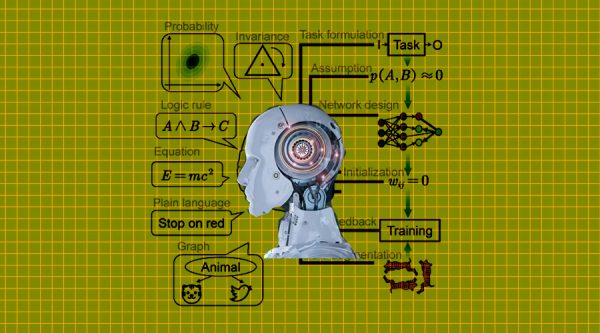As part of the extensive reforms being implemented in the education system, the Andhra Pradesh government has recommended incorporating artificial intelligence and associated tools, such as ChatGPT and machine learning, into school curricula.
On Sunday, Chief Minister YS Jagan Mohan Reddy appointed a committee to investigate whether artificial intelligence and its tools can be taught in schools and to develop a curriculum that integrates these subjects into school instruction. He requested that the group look at how pupils might be competitive in the new world by learning and adapting to these tools from a young age.
The School Education Department issued a government order establishing a high-level working group to provide next-generation education concepts and futuristic technologies to pupils in government schools.
The 13-member team is led by Praveen Prakash, Principal Secretary, School Education, and includes members such as Secretary IT, Government of AP; Commissioner School Education; State Project Director, Samagra Shiksha; Director of SCERT; Ashutosh Chadha, Microsoft India; Shalini Kapoor, Amazon Web Services India; Google; Shweta Khurana, Intel Asia Pacific; NASSCOM; and Jaijit Bhattacharya, President, Centre for Digital Economy
The state government implemented English as a medium of instruction in the 45,000-odd government schools in 2019–20, and all students—including those in Telugu-language schools—are learning English. While improving the English knowledge of government school students is an important requirement for making them globally employable, the next important requirement is to bolster their knowledge and skill set in next-generation upcoming technologies such as artificial intelligence, machine learning, large language models (LLM), data analytics, and bringing in LLM platform tools such as Chat GPT, Web 3.0, augmented reality, virtual reality, the Internet of Things, central ban, and so on. An official mentioned digital currency, autonomous vehicles, 3D printing, and gaming.
After the committee submits its recommendations by July 15, the school education department will begin teaching them to primary and secondary school students.
“In this way, students in Andhra Pradesh’s government schools will be able to obtain high-end global jobs in futuristic technologies and opportunities.” ”The committee will assist in deciding on and working towards the finalisation of the curriculum, infrastructure and resource deployment, learning content, and laboratory requirements,” Reddy added. Later this year, around 41 lakh children in the state government’s educational system will begin learning AI and other technologies.
In order to make students more competent, the Andhra Pradesh government first introduced English language labs for students, particularly those from Telugu-medium schools, to learn the language while also providing bilingual textbooks in science, social studies, and math. It also collaborated with Byjus’ to deliver audiovisual bilingual content to improve students’ learning quality and gave tabs with Byjus’ content preloaded to Class 8 instructors and students.
This academic year, 30,213 interactive flat panels (IFP) in high schools and 10,038 smart TVs in primary schools were used to digitise educational instruction. IFPs and smart TVs will be installed in the remaining classes by December.
Soon, AI Tools And Machine Learning Will Be Used To Supplement Instruction In Andhra Pradesh Government Basic Schools
Editors Corner
Recommended News
Google: AI From All Perspectives
Alphabet subsidiary Google may have been slower than OpenAI to make its AI capabilities publicly available in the past, but...
US And UK Doctors Think Pfizer Is Setting The Standard For AI And Machine Learning In Drug Discovery
New research from Bryter, which involved over 200 doctors from the US and the UK, including neurologists, hematologists, and oncologists,...
An Agreement Is Signed By MEA, MeitY, And CSC To Offer E-Migration Services Via Shared Service Centers
Three government agencies joined forces to form a synergy in order to deliver eMigrate services through Common Services Centers (CSCs)...
PR Handbook For AI Startups: How To Avoid Traps And Succeed In A Crowded Field
The advent of artificial intelligence has significantly changed the landscape of entrepreneurship. The figures say it all. Global AI startups...
Related Posts

IndiaNext Brings you latest news on artificial intelligence, Healthcare & Energy sector from all top sources in India and across the world.
Recent Posts
© India Next. All Rights Reserved. | Privacy Policy
|
Web Design & Digital Marketing by Heeren Tanna








